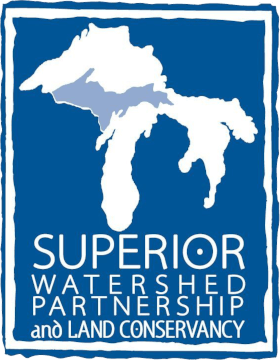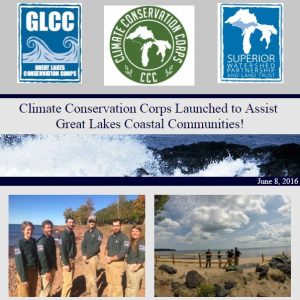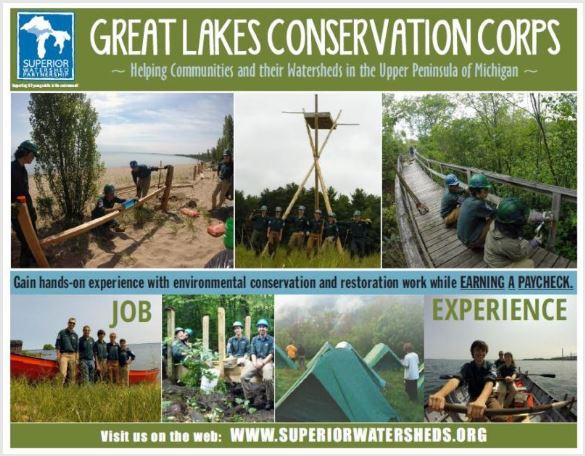Climate Conservation Corps Launched to Assist Great Lakes Communities
MARQUETTE, MICHIGAN: The Superior Watershed Partnership (SWP) is announcing the expansion of the Great Lakes Conservation Corps (GLCC) with the addition of the Climate Conservation Corps (CCC). The Great Lakes Corps has been steadily growing over the years and now has summer crews working in the Lake Superior, Lake Michigan and Lake Huron watersheds. GLCC crews work on a wide variety of conservation, restoration and recreation projects while the Climate Conservation Corps is specifically dedicated to projects that help coastal communities adapt to climate change and increase community resiliency to more extreme weather events.
CCC projects include but are not limited to coastal dune restoration, coastal wetland restoration, green infrastructure, stormwater management projects, buffer restoration and more. According to Emily Goodman, the SWP Corps Coordinator, “Much of the real work of community climate adaptation involves hand labor. It takes people, not just heavy equipment, to properly restore a riverbank, or dune, or wetland. The CCC takes climate planning to the next level: on-the-ground implementation. CCC members are helping to build more resilient coastal communities.”
Many Great Lakes communities are already feeling the impact of climate change and more extreme weather events. The combination of coastal storms and high lake levels has caused extensive erosion and infrastructure damage in many coastal communities. The iconic acronym for the Climate Conservation Corps (CCC) is an intentional nod to the legendary Civilian Conservation Corps initiated by Franklin D. Roosevelt during the Great Depression. Carl Lindquist the Executive Director of the Superior Watershed Partnership put it this way: “President Roosevelt formed the CCC to address a national economic crisis. We formed the Climate Conservation Corps to help address another type of crisis; global climate change. Young adults in the new CCC are helping communities become more resilient and better adapt to the impacts of a changing climate. They feel part of the solution.”
While the new CCC crews are focused on helping communities adapt to more extreme weather events and other climate impacts, the Great Lakes Conservation Corps (GLCC) continues to implement more traditional conservation, restoration and recreation projects. For example, this summer GLCC crews are building several new sections of the statewide Iron Belle/North Country Trail. Other GLCC projects include restoring habitat for the threatened Monarch butterfly, protecting habitat for the endangered Piping Plover, removing invasive plant species, restoring native plant species, erosion control and improved public access projects. GLCC and CCC partners include cities, tribes, state and federal agencies, businesses and private landowners.
Both the GLCC and the CCC crews are equipped with camping equipment for work at remote locations. All crews include an experienced supervisor, trained crew members (18-25 years old), transportation, field tools and safety equipment. All crew members receive first aid training. Crews can be contracted by the day or the week. Three, four and five member crews are available. For more information please contact the Superior Watershed Partnership.


